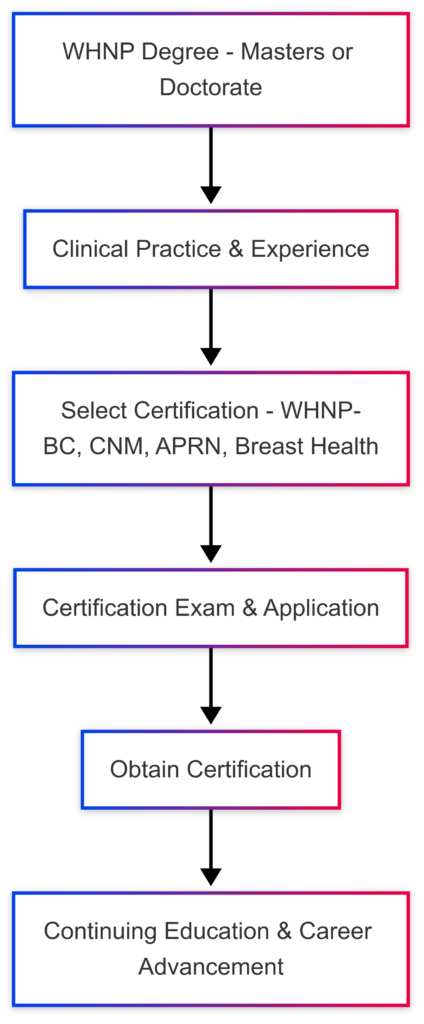For experienced registered nurses seeking to advance their careers without spending years in graduate school, accelerated Nurse Practitioner programs offer a streamlined pathway to greater clinical autonomy, prescriptive authority, and substantially increased earning potential. For example, while traditional MSN-NP programs typically require 24-36 months of study, today’s innovative accelerated options can be completed in just 12-18 months without compromising educational quality or certification exam preparation. With NP demand projected to grow 45% through 2030 and median salaries exceeding $125,000 annually, these expedited programs deliver exceptional return on investment for motivated nursing professionals. Our comprehensive analysis identifies the fastest accredited NP pathways nationwide, including accelerated FNP programs, ACNP programs, Pediatric NP programs, and specialized tracks designed for working nurses who can’t afford extended career interruptions.
2025 Fastest Nurse Practitioner Programs
Looking for the fastest nurse practitioner programs? nursepractitioneronline.com has ranked the top options to help you advance your career quickly. These programs are designed for busy professionals who want to earn their degree without wasting time. We focus on accredited, reputable schools that offer flexible schedules. Whether you're just starting or looking to specialize, our list can guide you to the right program. Check out our rankings to find a path that fits your goals. Learn more about how we rank these programs here.
Johns Hopkins University
Baltimore, MD - Private 4-year - jhu.edu
Doctorate - DNP: Pediatric Primary Care Nurse Practitioner
Online & Campus Based - Visit Website
Johns Hopkins University's DNP Pediatric Primary Care Nurse Practitioner program equips advanced practice nurses to deliver comprehensive pediatric healthcare. Over three years, students gain sophisticated clinical skills to diagnose, manage, and treat pediatric patients from newborns through adolescence. The rigorous curriculum combines online learning with onsite immersions, preparing graduates to provide complex, evidence-based care across various healthcare settings. With an estimated tuition of $1,997 per credit, students complete 74.5 credits and earn 840 clinical hours, positioning themselves as expert pediatric nurse practitioners ready to transform healthcare delivery.
- 3-year online with immersions
- 840 clinical hours
- 74.5 total program credits
- Prepares for pediatric certification
- Minimum 3.0 GPA required
- One year RN experience preferred
- Doctoral level advanced practice
Doctorate - DNP: Pediatric Dual Primary/Acute Care Nurse Practitioner
Concentration: Primary/Acute Care - Online & Campus Based - Visit Website
Johns Hopkins University's DNP Pediatric Dual Primary/Acute Care Nurse Practitioner program uniquely prepares advanced practice nurses to excel in pediatric healthcare. This top-ranked, innovative 3-year online program with onsite immersions equips students to diagnose and manage complex pediatric health conditions across primary and acute care settings. With an estimated tuition of $1,997 per credit, students gain comprehensive clinical expertise through 960 clinical hours and advanced scholarly training. Graduates become certified in both primary and acute care pediatric nursing, positioning themselves as leaders in pediatric healthcare delivery and equipped to drive meaningful patient outcomes.
- Dual Primary/Acute Care Certification
- 3-year online with immersions
- 960 clinical hours
- $1,997 per credit tuition
- Comprehensive pediatric training
- Advanced scholarly project focus
- Leadership development emphasis
Doctorate - DNP: Family Primary Care Nurse Practitioner
Online & Campus Based - Visit Website
Johns Hopkins University's Doctor of Nursing Practice (DNP) in Family Primary Care Nurse Practitioner is a transformative three-year program designed to elevate nursing practice. Students gain comprehensive skills to diagnose, manage, and provide holistic care across patient lifespans. With a rigorous curriculum combining advanced clinical training and leadership development, graduates emerge as expert practitioners capable of delivering high-quality, evidence-based healthcare. The program includes 960 clinical hours and prepares students for national certification, emphasizing complex decision-making, advanced assessment techniques, and systemic healthcare improvement. Estimated tuition is $1,997 per credit, with various financial aid options available.
- 3-year online with immersions
- 76 total credit program
- 960 family primary care hours
- Prepares for certification exam
- Leadership and clinical focus
- Minimum 3.0 GPA required
- RN license prerequisite
- One year RN experience preferred
- Hybrid learning format
- Advanced clinical decision-making
Doctorate - DNP: Psychiatric Mental Health Nurse Practitioner
Online & Campus Based - Visit Website
Transform mental healthcare with Johns Hopkins' elite DNP Psychiatric Mental Health Nurse Practitioner program. Designed for passionate nurses seeking advanced clinical expertise, this rigorous three-year online program prepares professionals to address critical mental health gaps across patient lifespans. Graduates gain comprehensive skills in complex diagnostic reasoning, evidence-based treatment, and sophisticated clinical decision-making. With an estimated tuition of $1,997 per credit and robust financial aid options, students develop advanced competencies to diagnose, manage, and treat mental health disorders independently across diverse healthcare settings.
- 3-year online with immersions
- 76 total credit program
- 1040 clinical hours
- Board certification preparation
- Complex patient care focus
- Minimum 3.0 GPA required
- One year RN experience preferred
- 160 project practicum hours
- Comprehensive mental health training
Doctorate - DNP: Adult-Gerontological Primary Care Nurse Practitioner
Online & Campus Based - Visit Website
Johns Hopkins University's Doctor of Nursing Practice (DNP) in Adult-Gerontological Primary Care Nurse Practitioner prepares advanced practice nurses to provide comprehensive, high-quality healthcare for adult and older adult populations. This rigorous 3-year online program with onsite immersions equips students with advanced clinical skills, evidence-based decision-making techniques, and leadership capabilities. Students learn to diagnose and manage complex health conditions, conduct sophisticated assessments, and transform healthcare delivery across various settings. With an estimated tuition of $1,997 per credit, the program requires a minimum GPA of 3.0, an active RN license, and one year of nursing experience. Graduates are prepared to take national certification exams and emerge as clinical scholars ready to lead interdisciplinary healthcare teams.
- 3-year online with immersions
- 74 total credit program
- 960 clinical hours required
- Minimum 3.0 GPA required
- One year RN experience preferred
- National certification preparation
- Hybrid learning format
- Advanced clinical decision-making
- Leadership skill development
- Complex patient care focus
Doctorate - DNP: Adult-Gerontological Acute Care Nurse Practitioner
Online & Campus Based - Visit Website
Johns Hopkins University's DNP Adult-Gerontological Acute Care Nurse Practitioner program prepares advanced practice nurses to provide complex, comprehensive care for critically ill adult and older adult patients. Designed as a three-year hybrid program with online coursework and onsite immersions, students develop advanced clinical skills to diagnose, treat, and manage patients across acute care settings. With an estimated tuition of $1,997 per credit, the program offers financial aid options and requires a minimum of 1,000 clinical practice hours. Applicants must have a BSN, one year of acute care RN experience, and a minimum 3.0 GPA.
- 3-year hybrid online program
- 840 clinical hours required
- Online with onsite immersions
- 1,000 total practice hours
- Maryland RN license required
- Advanced clinical decision-making
- Prepares for ANCC certification
- Faculty-guided scholarly project
University of Minnesota-Twin Cities
Minneapolis, MN - Public 4-Year - twin-cities.umn.edu
Doctorate - Pediatric Nurse Practitioner Primary Care
Online & Campus Based - Visit Website
The University of Minnesota's Doctor of Nursing Practice in Pediatric Nurse Practitioner Primary Care prepares advanced nursing professionals to deliver comprehensive healthcare for children from infancy through young adulthood. Students gain expertise in child and family development, with specialized training in managing diverse health needs, including chronic conditions and disabilities. The rigorous program emphasizes evidence-based practice, health policy, and system improvement, equipping graduates to provide high-quality primary care, conduct nursing scholarship, and lead transformative healthcare initiatives.
- 3-year full-time program
- Approximately 1,000 clinical hours
- On-campus sessions each semester
- Prepare for pediatric certification exam
- Diverse clinical experience settings
- Leadership and policy development focus
- Care for diverse patient populations
- Expert clinician mentorship
- Multiple practice setting opportunities
Doctorate - Pediatric Nurse Practitioner- Acute Care specialty Certificate
Concentration: Acute Care - Online & Campus Based - Visit Website
The University of Minnesota's Pediatric Nurse Practitioner - Acute Care specialty Certificate equips advanced practice registered nurses with specialized skills to manage complex pediatric health challenges. Designed for experienced nurses, this program prepares professionals to provide comprehensive care for infants, children, and young adults with acute, critical, and chronic conditions. Students gain expertise in emergency, inpatient, and outpatient settings, learning to collaborate with interprofessional teams and deliver culturally competent, family-centered care. Ideal for nurses seeking advanced pediatric acute care expertise, the program offers a strategic pathway to enhance clinical skills and patient outcomes.
- Three-semester post-graduate certificate
- Prepares nurses for complex pediatric care
- Covers ages infant to 21
- Multiple healthcare setting training
- Partners with major children's hospitals
Doctorate - Doctor of Nursing Practice
Concentration: Family Nurse Practitioner - Online & Campus Based - Visit Website
The University of Minnesota's Doctor of Nursing Practice with Family Nurse Practitioner concentration prepares advanced healthcare professionals to deliver comprehensive, patient-centered care across all life stages. Students develop advanced clinical skills, learning to diagnose, treat, and manage complex health conditions while emphasizing evidence-based practice and holistic patient engagement. The rigorous 3-year program equips graduates to provide critical health services, from preventive care to disease management, with a strong focus on interprofessional collaboration and technological integration.
- 3-year full-time program
- On-campus hybrid learning
- 1,000 clinical hours
- Comprehensive patient care training
- Evidence-based practice focus
- Lifespan patient management
- Professional certification eligibility
- Advanced diagnostic skills
- Medication management training
- Collaborative healthcare approach
Doctorate - Psychiatric/Mental Health Nurse Practitioner
Online & Campus Based - Visit Website
The University of Minnesota's Psychiatric/Mental Health Nurse Practitioner DNP prepares advanced nursing professionals to deliver comprehensive mental health care across patient lifespans. This rigorous program equips students with skills to diagnose complex psychiatric disorders, develop holistic treatment plans, and implement diverse therapeutic interventions. With a flexible three to four-year format, students complete 1,000 clinical hours and benefit from specialized on-campus sessions. Graduates become eligible for certification and can pursue diverse career paths in mental health settings, from private practice to hospital psychiatric units.
- 80 total credit doctoral program
- 3-4 year completion options
- $1,100 per credit cost
- 3.0 minimum admission GPA
- On-campus hybrid format
- 1,000 clinical hours required
- CCNE accredited program
- Certification exam preparation
Doctorate - Women's Health/Gender-Related Nurse Practitioner
Online & Campus Based - Visit Website
The University of Minnesota's Women's Health/Gender-Related Nurse Practitioner program empowers advanced nursing professionals to deliver comprehensive, patient-centered care across women's lifespans. Students gain expertise in diagnosing, managing, and treating complex women's health conditions through an integrative, holistic curriculum. The three-year doctoral program prepares graduates to serve as primary care providers in diverse clinical settings, emphasizing health promotion, disease prevention, and interprofessional collaboration. Graduates become certified to provide specialized women's healthcare, addressing unique health challenges with evidence-based practice and compassionate care.
- 3-year full-time doctoral program
- Approximately 1,000 clinical hours
- On-campus sessions each semester
- Holistic, interprofessional approach
- Primary care preparation for women
- National certification eligible
- Diverse clinical placement opportunities
Doctorate - Adult Gerontological Primary Care Nurse Practitioner DNP
Online & Campus Based - Visit Website
The University of Minnesota's Adult Gerontological Primary Care Nurse Practitioner DNP program prepares advanced nursing professionals to deliver comprehensive healthcare for adults and older adults. This rigorous three-year program equips students with leadership skills in healthcare systems, emphasizing evidence-based practice and systemic change. Graduates are prepared to independently manage primary care needs and pursue national certification. With a competitive admission requirement of a 3.0 GPA and a cost of $1,100 per credit, students complete 82 total credits and 1,000 clinical hours, positioning themselves at the forefront of geriatric and adult primary care nursing.
- Three-year full-time DNP program
- 82 total program credits
- 1,000 clinical hours required
- $1,100 per credit cost
- 3.0 minimum admission GPA
- Hybrid program format
- CCNE accredited program
- National certification preparation
- Leadership in healthcare focus
- Campus sessions each semester
University of Wisconsin-Madison
Madison, WI - Public 4-Year - wisc.edu
Doctorate - Nursing Practice, DNP
Concentration: Pediatric Primary Care Nurse Practitioner - Online & Campus Based - Visit Website
The University of Wisconsin-Madison's Doctor of Nursing Practice (DNP) in Pediatric Primary Care Nurse Practitioner prepares advanced practice nurses to deliver comprehensive, high-quality pediatric healthcare. Students complete a rigorous 68-credit hybrid program focusing on evidence-based practice, clinical leadership, and specialized pediatric care. Admission requires a nursing bachelor's degree, RN license, professional nursing experience, and a 3.0 GPA. The program offers financial support through fellowships, scholarships, and assistantships, making advanced nursing education accessible and affordable for aspiring pediatric nurse practitioners.
- Hybrid program delivery
- PNCB Primary Care Pediatric NP certification
- Post-BS 68 credits, Post-MS 51 credits
- 3.0 minimum GPA required
- RN license and professional experience needed
- 3 letters of recommendation
- GRE not required
- Fall admission only
- Graduate research scholar opportunities
Doctorate - Nursing Practice: Psychiatric Mental Health Nurse Practitioner, DNP
Online & Campus Based - Visit Website
The University of Wisconsin-Madison's Doctor of Nursing Practice (DNP) in Psychiatric Mental Health Nurse Practitioner prepares advanced practice nurses to provide comprehensive mental health care. This hybrid program offers a rigorous curriculum designed for working professionals seeking to specialize in psychiatric and mental health nursing. Students complete 68 credits with a focus on advanced clinical skills, evidence-based practice, and healthcare leadership. Admission requires a baccalaureate nursing degree, RN licensure, professional experience, and a competitive academic record. Graduates are equipped to deliver high-quality, patient-centered mental health care in diverse healthcare settings.
- Hybrid program delivery
- 68 total credit requirement
- 3.0 minimum GPA
- RN license required
- One year nursing experience
- ANCC Psychiatric-Mental Health NP certification track
- Graduate School minimum requirements
- Advanced clinical practicum
- Evidence-based practice focus
- Leadership and policy courses
Doctorate - Nursing Practice: Adult/Gerontology Primary Care Nurse Practitioner, DNP
Online & Campus Based - Visit Website
The University of Wisconsin-Madison's Doctor of Nursing Practice (DNP) in Adult/Gerontology Primary Care Nurse Practitioner offers a comprehensive, hybrid program designed for advanced practice nurses seeking to elevate their clinical expertise. Tailored for post-baccalaureate and post-master's nurses, this program prepares professionals to deliver high-quality, patient-centered care to adult and geriatric populations. With a rigorous curriculum combining theoretical knowledge and hands-on clinical practice, students develop advanced assessment, diagnostic, and treatment skills. Admission requires a 3.0 GPA, RN licensure, professional nursing experience, and completion of a statistics course. The program offers financial support through fellowships, scholarships, and assistantships, making advanced nursing education accessible and affordable.
- Hybrid course delivery
- ANCC Adult-Gerontology NP certification
- 68 post-BS credits required
- 3 letters of recommendation needed
- One year nursing experience required
- RN license prerequisite
- Graduate assistantships available
- Flexible post-BS and post-MS options
Florida State University
Tallahassee, FL - Public 4-Year - fsu.edu
Doctorate - Doctor of Nursing Practice
Concentration: Family Nurse Practitioner - Online & Campus Based - Visit Website
Florida State University's Doctor of Nursing Practice (DNP) Family Nurse Practitioner track offers a comprehensive, online program preparing advanced practice nurses to deliver holistic healthcare across patient lifespans. Students gain expertise in primary care, learning to perform comprehensive health assessments, diagnose conditions, prescribe treatments, and lead healthcare initiatives. The three-year program combines rigorous online coursework with clinical experiences, emphasizing health promotion, disease prevention, and serving diverse populations. With competitive in-state tuition of $32,440 and flexible learning options, graduates are positioned to excel in various healthcare settings.
- Online DNP program
- Focuses on family healthcare
- Hybrid learning format
- In-state tuition $32,440
- Prepares for national certification
- Practice in diverse settings
- Minimal campus visits
- 3.0 GPA admission requirement
- Clinical experiences nationwide
- Leadership-focused curriculum
Doctorate - DNP- Psychiatric Mental Health Nurse Practitioner
Online & Campus Based - Visit Website
Florida State University's Doctor of Nursing Practice in Psychiatric Mental Health Nurse Practitioner prepares advanced practice nurses to deliver comprehensive mental healthcare across diverse settings. Students develop expertise in diagnosing, treating, and managing complex psychiatric conditions through evidence-based practices. The hybrid program offers specialized training in mental health interventions, psychopharmacology, and telehealth strategies. Graduates gain advanced clinical skills to serve vulnerable populations in various healthcare environments, from community clinics to correctional facilities. With competitive in-state tuition of $24,000 and flexible online coursework, this program equips nurses to become leaders in psychiatric mental health practice.
- Hybrid online/clinical program
- Prepare for ANCC certification
- Diverse practice settings
- In-state tuition $24,000
- Three-year comprehensive curriculum
- Evidence-based clinical training
- National recognized faculty
- Advanced practice nursing skills
Doctorate - DNP- Adult Gerontology Acute Care Nurse Practitioner
Online & Campus Based - Visit Website
Florida State University's Doctor of Nursing Practice in Adult Gerontology Acute Care prepares advanced practice nurses for high-level clinical roles. This hybrid program combines online coursework with minimal campus sessions, offering flexibility for working healthcare professionals. Designed for nurses with acute care experience, the program meets national nursing education standards and prepares graduates for certification exams. Tuition ranges from $32,440 for in-state to $78,475 for out-of-state students, with multiple entry pathways including BSN-to-DNP and post-master's options.
- Full-time and part-time study
- Primarily online coursework
- Five campus sessions required
- Multiple entry pathways
- Synchronous and asynchronous classes
- RN experience recommended
- Certification exam preparation
- 3.0 GPA minimum
- Seven-year completion timeline
- Comprehensive clinical training
University of Pittsburgh-Pittsburgh Campus
Pittsburgh, PA - Public 4-Year - pitt.edu
Doctorate - BSN to DNP Pediatric Primary Care Nurse Practitioner
Concentration: Pediatric Primary Care - Campus Based - Visit Website
The University of Pittsburgh's BSN to DNP Pediatric Primary Care Nurse Practitioner program offers an advanced pathway for nurses seeking specialized pediatric healthcare expertise. This comprehensive doctoral program prepares nurses to provide high-quality, holistic care for children from infancy through adolescence. Students will develop advanced clinical skills, learn comprehensive pediatric assessment techniques, and gain expertise in managing complex pediatric health conditions. The program emphasizes evidence-based practice, clinical reasoning, and leadership in pediatric healthcare settings. Graduates emerge as skilled practitioners ready to make significant contributions to children's health and wellness.
- Doctoral-level pediatric nursing
- Advanced clinical practice focus
- Comprehensive pediatric healthcare training
- Evidence-based practice emphasis
- Leadership in pediatric care
Doctorate - Family (Individual Across the Lifespan) Nurse Practitioner
Online & Campus Based - Visit Website
The University of Pittsburgh's Doctor of Nursing Practice (DNP) Family Nurse Practitioner program prepares advanced practice nurses to deliver comprehensive, patient-centered healthcare across all life stages. Graduates are equipped to diagnose, treat, and manage patient health through a holistic approach that blends clinical expertise with preventive care strategies. The program emphasizes autonomous practice, medication prescription, diagnostic interpretation, and patient education. With a focus on reducing healthcare costs and improving patient outcomes, students develop critical skills to serve diverse communities, especially in underserved regions.
- Nationally accredited program
- Six NP specialty areas
- Blended clinical and teaching approach
- Autonomous healthcare practice
- Growing job market projection
- Distance education options
- Comprehensive DNP project required
Doctorate - Adult-Gerontology Primary Care Nurse Practitioner
Campus Based - Visit Website
The Adult-Gerontology Primary Care Nurse Practitioner (AG-PCNP) program at the University of Pittsburgh offers an advanced doctoral pathway for nurses seeking specialized expertise in adult and geriatric healthcare. This comprehensive BSN to DNP track prepares healthcare professionals to deliver high-quality primary care across diverse patient populations, emphasizing chronic condition management and holistic patient wellness. Students develop advanced clinical skills through intensive coursework and extensive practicum experiences, positioning graduates for leadership roles in primary care settings. The rigorous curriculum covers advanced diagnostics, pharmacology, health promotion, and clinical management strategies.
- BSN to DNP concentration
- Full-time onsite program
- 88 total credit program
- National certification preparation
- Comprehensive clinical training
- Advanced diagnostic skills focus
- Gerontology health management
- Leadership development courses
- Three-year completion timeline
Doctorate - Adult-Gerontology Acute Care Nurse Practitioner
Online & Campus Based - Visit Website
The University of Pittsburgh's Adult-Gerontology Acute Care Nurse Practitioner (AG-ACNP) BSN to DNP program prepares advanced practice nurses to deliver expert care for critically and chronically ill adults. Students develop comprehensive skills in acute care settings, focusing on complex health management, diagnostic reasoning, and evidence-based practice. The rigorous three-year curriculum combines intensive clinical training with academic coursework, enabling graduates to become highly skilled nurse practitioners who can provide specialized care, lead healthcare initiatives, and contribute to medical research.
- Full-time onsite Pittsburgh program
- 79 total credit curriculum
- Prepares for national certification
- Clinical emphasis options available
- Three-year DNP track
- Advanced clinical training
- Leadership and research focus
- Comprehensive clinical practicum
- Synchronous distance options
- Acute care specialization
Doctorate - Adult-Gerontology Primary Care Nurse Practitioner
Online Learning - Visit Website
The Adult-Gerontology Primary Care Nurse Practitioner (AG-PCNP) concentration prepares advanced nursing professionals to provide comprehensive healthcare for patients from adolescence through adulthood. Students in this rigorous DNP program develop advanced clinical skills, leadership capabilities, and evidence-based practice expertise. Designed for MSN-prepared nurse practitioners, the program offers flexible online and onsite learning options. Graduates emerge as expert clinicians equipped to diagnose, manage complex health conditions, and lead transformative healthcare initiatives across diverse primary care settings.
- Flexible online and onsite study
- MSN to DNP pathway
- Minimum 41 credits required
- Full-time or part-time options
- Nationally certified NPs eligible
- Comprehensive DNP project required
- Advanced clinical leadership focus
- Adolescent through adult healthcare
Doctorate - Adult-Gerontology Primary Care Nurse Practitioner
Online & Campus Based - Visit Website
The University of Pittsburgh's Adult-Gerontology Primary Care Nurse Practitioner program offers a comprehensive distance education pathway for nurses seeking advanced practice credentials. This innovative DNP track prepares healthcare professionals to become primary care providers for patients from adolescence through adulthood, emphasizing evidence-based practice and complex health management. Students benefit from virtual learning environments, strategic clinical partnerships, and comprehensive coursework covering diagnosis, healthcare policy, leadership, and patient care strategies.
- Distance education format
- Virtual classroom interactions
- Clinical partnerships established
- CCNE accredited program
- Comprehensive DNP curriculum
- Advanced practice preparation
- Flexible learning environment
Baylor University
Waco, TX - Private 4-year - baylor.edu
Doctorate - DNP - Pediatric Nurse Practitioner
Concentration: Primary Care, Acute Care - Online Learning - Visit Website
Baylor University's Online DNP - Pediatric Nurse Practitioner program provides advanced nursing professionals a comprehensive pathway to specialize in pediatric healthcare. This rigorous doctoral-level program offers two distinct tracks—Primary Care and Acute Care—preparing nurses to deliver high-quality, patient-centered care for children from birth to adolescence. Students can complete the program in approximately three to four years, with 75 total credits for the Primary Care track. The curriculum emphasizes clinical expertise, health promotion, and complex pediatric health management, leveraging 100% online coursework with strategic on-campus immersions. With a practicum requirement of 1,125 clinical hours and support from nationally recognized faculty, graduates are equipped to meet the growing demand for specialized pediatric nurse practitioners.
- 100% Online Coursework
- 1,125 Clinical Practicum Hours
- Two Specialized Tracks Available
- No GRE Required
- 3.0 Minimum GPA
- BSN to DNP Pathway
- CCNE Accredited Program
- Clinical Placement Support
- Nationally Recognized Faculty
Doctorate - DNP - Pediatric Nurse Practitioner
Concentration: Primary Care - Online Learning - Visit Website
Baylor University's Doctor of Nursing Practice (DNP) Pediatric Nurse Practitioner track offers an advanced online program designed for registered nurses seeking to specialize in pediatric healthcare. This comprehensive program prepares nurses to provide high-quality, patient-centered care for children and adolescents in primary and acute care settings. Students can choose between Primary Care and Primary/Acute Care tracks, gaining extensive clinical experience through 1,125 practicum hours. With no GRE required and a competitive 3.0 GPA threshold, the program offers a flexible pathway for working nurses, taking approximately three to four years to complete. Graduates emerge as expert pediatric healthcare providers with advanced clinical skills and leadership capabilities.
- 100% Online Coursework
- 1,125 Clinical Practicum Hours
- BSN to DNP Pathway
- No GRE Required
- CCNE Accredited Program
- Clinical Placement Support
- Two Track Options Available
- Primary and Acute Care Focus
Doctorate - DNP - Pediatric Nurse Practitioner
Concentration: Acute Care - Online Learning - Visit Website
Baylor University's Doctor of Nursing Practice (DNP) in Pediatric Nurse Practitioner with an Acute Care concentration offers advanced healthcare professionals a cutting-edge pathway to specialize in pediatric acute care. Designed for experienced registered nurses, this fully online program prepares students to deliver complex, high-quality care to critically ill children in demanding healthcare settings like intensive care and emergency departments. With a comprehensive curriculum spanning 75 credits and completed in approximately four years, students develop advanced clinical judgment, decision-making skills, and specialized procedural expertise. The program requires 1,125 primary care hours plus an additional 600 acute care hours, ensuring graduates are thoroughly prepared for advanced practice roles. Ranked among top nursing schools by U.S. News & World Report, Baylor provides robust clinical placement support and expert faculty guidance, making it an exceptional choice for nurses seeking to elevate their pediatric healthcare career.
- 100% Online Coursework
- 75 Total Credits
- 1,125 Clinical Hours
- No GRE Required
- BSN to DNP Pathway
- 3.0 GPA Minimum
- One Year Pediatric Experience Required
- CCNE Accredited
- Clinical Placement Support
Doctorate - Doctor of Nursing Practice – Psychiatric Mental Health Nurse Practitioner
Online Learning - Visit Website
Baylor University's Doctor of Nursing Practice in Psychiatric Mental Health Nurse Practitioner prepares advanced nurses to deliver transformative mental healthcare across patient lifespans. This rigorous online program equips students with advanced clinical skills, evidence-based practice techniques, and leadership competencies needed to diagnose, treat, and manage complex psychiatric conditions. Graduates gain expertise in pharmacological and non-pharmacological interventions, positioning themselves at the forefront of mental health practice. With a competitive 3.0 GPA requirement and no GRE needed, the program offers comprehensive clinical training, including 1,125 practicum hours, to develop highly skilled psychiatric nurse practitioners ready to address critical mental health needs nationwide.
- 100% Online Coursework
- CCNE Accredited Program
- 1,125 Total Clinical Hours
- No GRE Required
- 3.0 Minimum GPA
- 15-week Course Terms
- Total 77 Program Credits
- Clinical Placement Support
- One Year Nursing Experience Required
Doctorate - Doctor of Nursing Practice - Adult-Gerontology Acute Care Nurse Practitioner
Online Learning - Visit Website
Baylor University's Doctor of Nursing Practice in Adult-Gerontology Acute Care Nurse Practitioner (DNP-AGACNP) prepares experienced nurses to excel in complex acute care settings. This rigorous online program equips students with advanced clinical skills to provide comprehensive care for adult and geriatric patients across critical healthcare environments. Designed for working professionals, the program offers flexible learning with a total of 75 credits completed in approximately three years. Students benefit from nationally recognized faculty, clinical placement support, and a curriculum focused on evidence-based practice. Admission requires a BSN with a 3.0 GPA, one year of professional nursing experience, and an unencumbered RN license. The program boasts a competitive edge with CCNE accreditation and recognition by U.S. News & World Report.
- 100% Online Coursework
- 75 Total Credits
- CCNE Accredited Program
- 1,125 Clinical Practicum Hours
- No GRE Required
- 3.0 Minimum GPA
- 15-week Course Terms
- Clinical Placement Support
- Expert Faculty Guidance
- Multiple Nursing Tracks Available
University of Delaware
Newark, DE - Public 4-Year - udel.edu
Doctorate - Doctor of Nursing Practice
Concentration: Pediatric Primary Care Nurse Practitioner - Online & Campus Based - Visit Website
The University of Delaware's Doctor of Nursing Practice (DNP) in Pediatric Primary Care Nurse Practitioner prepares advanced nursing professionals to deliver high-quality, comprehensive healthcare for children. This intensive program focuses on developing expert clinicians who can provide specialized pediatric care, lead healthcare innovations, and improve population health outcomes. With a flexible online format and occasional immersive learning experiences, students gain advanced clinical skills and scholarly expertise. The program offers a competitive tuition rate of $1,069 per credit and can be completed in 3 years full-time or 5 years part-time, making it accessible for working healthcare professionals seeking to elevate their pediatric nursing career.
- 100% Online with Clinical Placements
- Advanced Pediatric Care Focus
- $1,069 per Credit Tuition
- 3-5 Year Completion Options
- CCNE Accredited Program
- Practice Doctoral Degree
- 100% Board Pass Rate
- Comprehensive Clinical Training
- Population Health Emphasis
- Expert Faculty Mentorship
Doctorate - Doctor of Nursing Practice
Concentration: Family/Individual Across the Lifespan - Online & Campus Based - Visit Website
The University of Delaware's Doctor of Nursing Practice (DNP) with Family Nurse Practitioner concentration prepares advanced nursing professionals to deliver comprehensive primary healthcare across all life stages. Students develop critical skills in managing acute and chronic conditions, emphasizing health promotion and disease prevention. This rigorous 81-credit program combines intensive clinical training with 1,120 practical hours, equipping graduates to lead in integrated healthcare environments. Ideal for registered nurses seeking to expand their clinical expertise and professional impact, the program offers a pathway to becoming highly skilled primary care practitioners.
- 81 total credit hours
- 1,120 clinical training hours
- Primary care across lifespan
- Post-baccalaureate and post-master's options
- 3.0/3.5 minimum GPA requirement
- One year RN experience required
- CCNE accredited program
Doctorate - DNP Psychiatric Mental Health Nurse Practitioner
Concentration: Psychiatric Mental Health Nurse Practitioner - Online & Campus Based - Visit Website
The University of Delaware's DNP Psychiatric Mental Health Nurse Practitioner concentration equips advanced practice nurses with comprehensive skills to deliver high-quality mental health care. Students gain expertise in psychotherapy and medication management across the lifespan, preparing for the PMHNP certification exam. The hybrid program combines innovative teaching methods with extensive clinical training, focusing on evidence-based practices and interdisciplinary collaboration. Graduates develop advanced competencies to address complex mental health challenges and lead integrated healthcare delivery models.
- 81 total credit hours
- 1008 clinical training hours
- Hybrid delivery model
- Psychotherapy and medication management
- Lifespan mental health focus
- Minimum 3.0 undergraduate GPA
- Post-baccalaureate and post-master's options
- CCNE accredited program
- Interview required for admission
- Washington State approved
Doctorate - Adult-Gerontology Primary Care Nurse Practitioner
Online & Campus Based - Visit Website
The University of Delaware's Doctor of Nursing Practice (DNP) in Adult-Gerontology Primary Care prepares advanced practice nurses to deliver comprehensive healthcare for adults aged 18 and older. Designed for experienced nurses, this hybrid program equips students with specialized skills in health promotion, disease prevention, and interdisciplinary care delivery. Graduates emerge as skilled clinicians capable of addressing complex health challenges for adult and elderly populations across diverse practice settings.
- 81 total credit hours
- 1120 clinical training hours
- Specialized adult/elderly care focus
- Post-baccalaureate and post-master's options
- Minimum 3.0 undergraduate GPA
- Delaware RN licensure required
- One year nursing experience
- Interdisciplinary healthcare preparation
Stony Brook University
Stony Brook, NY - Public 4-Year - stonybrook.edu
Master's - Pediatric Primary Care Nurse Practitioner
Online Learning - Visit Website
Stony Brook University offers an online Master of Science in Pediatric Primary Care Nurse Practitioner program, designed for nurses aiming to specialize in pediatric care. This program equips students with the skills to provide comprehensive healthcare to children from infancy through adolescence. It's perfect for working professionals seeking flexibility, with courses delivered online. The curriculum covers advanced pediatric nursing practices, health assessment, and disease prevention. Admission requires a BSN, RN license, and relevant experience. While costs vary, financial aid options are available. This program prepares graduates for certification and rewarding careers in pediatric healthcare settings.
- Online Master of Science
- Pediatric Primary Care focus
- Flexible for working professionals
- BSN and RN license required
- Prepares for certification
- Comprehensive pediatric curriculum
- Financial aid available
- Advanced nursing practices covered
- Health assessment training
- Disease prevention strategies
Doctorate - Psychiatric-Mental Health Nurse Practitioner DNP
Online & Campus Based - Visit Website
Stony Brook University's Psychiatric-Mental Health Nurse Practitioner DNP program prepares advanced nursing professionals to deliver comprehensive mental healthcare. Designed for experienced nurses seeking doctoral-level expertise, this hybrid program emphasizes evidence-based practice, interprofessional collaboration, and leadership skills. Graduates develop advanced clinical competencies in mental health assessment, intervention, and population health management. The program boasts an impressive 100% graduation rate and offers substantial career potential, with median earnings reaching $196,570 a decade after graduation.
- 100% 5-year graduation rate
- Hybrid program format
- Doctoral-level mental health training
- $196,570 median earnings
- Advanced nursing practice focus
- Interprofessional collaboration skills
- Evidence-based practice emphasis
- Population health management
- Leadership development
- 2.00 average years to degree
Doctorate - Women's Health Nurse Practitioner D.N.P.
Online & Campus Based - Visit Website
Stony Brook University's Doctor of Nursing Practice (DNP) in Women's Health Nurse Practitioner prepares advanced nursing professionals to deliver specialized, high-quality healthcare. This rigorous hybrid program equips students with comprehensive skills in evidence-based practice, population health management, and interprofessional collaboration. Graduates develop advanced analytical and leadership capabilities to improve healthcare outcomes for women across diverse settings, leveraging cutting-edge technology and scientific research.
- Hybrid program delivery
- Advanced nursing practice focus
- Evidence-based healthcare approach
- Interprofessional collaboration skills
- Technology-integrated learning
- Population health management
- Scientific data analysis
- Leadership skill development
- Advanced healthcare strategies
Doctorate - Adult-Gerontology Primary Care Nurse Practitioner
Online & Campus Based - Visit Website
Stony Brook University's Adult-Gerontology Primary Care Nurse Practitioner program prepares advanced practice nurses to deliver comprehensive healthcare for adult and elderly populations. Students gain expertise in holistic patient assessment, disease management, and preventive care across various healthcare settings. The hybrid program offers flexibility with distance learning and on-site requirements, enabling nurses to advance their clinical skills and leadership capabilities. Graduate-level training emphasizes evidence-based practice, interprofessional collaboration, and specialized knowledge in adult-gerontology primary care.
- Hybrid distance learning format
- Advanced practice nursing focus
- CCNE accredited program
- Distance learning with on-site requirements
- Prepares nurses for advanced roles
- Comprehensive adult-gerontology care
- Clinical skills development
- Interprofessional collaboration emphasis
- Evidence-based practice training
Saint Louis University
Saint Louis, MO - Private 4-year - slu.edu
Doctorate - Nursing Practice, D.N.P.
Concentration: Pediatric Primary Care Nurse Practitioner - Online & Campus Based - Visit Website
Saint Louis University's Doctor of Nursing Practice (D.N.P.) in Pediatric Primary Care offers aspiring nurse practitioners a comprehensive pathway to becoming advanced pediatric healthcare professionals. Focused on children from birth to 21 years, this program prepares students to provide critical health services across diverse settings including pediatric offices, schools, urgent care centers, and specialty clinics. Students will develop expertise in health promotion, disease prevention, and comprehensive pediatric care management. With a competitive per-credit tuition of $1,370 and rigorous curriculum requiring 1,050-1,125 clinical hours, graduates are positioned for excellent career prospects, with the Bureau of Labor Statistics projecting 38% employment growth for nurse practitioners between 2022 and 2032.
- Pediatric care birth to 21 years
- 1,050-1,125 clinical hours
- National certification eligible
- Hybrid program format
Doctorate - Nursing Practice, D.N.P.
Concentration: Family Nurse Practitioner - Online & Campus Based - Visit Website
Saint Louis University's Doctor of Nursing Practice (D.N.P.) in Family Nurse Practitioner concentration prepares advanced nursing professionals to provide comprehensive primary healthcare across all age groups. Students learn to assess, manage, and prevent health conditions while developing strong patient-centered relationships. The program emphasizes quality care delivery, health education, and community service. With competitive tuition at $1,370 per credit, students complete 62-67 credits and 1,050-1,125 clinical hours. Admission requires a BSN, 3.50 GPA, one year clinical experience, and an unencumbered RN license. Graduates are positioned for high-demand careers with a median salary of $125,900 and projected 38% job growth by 2032.
- Comprehensive primary healthcare training
- 62-67 total program credits
- 1,050-1,125 clinical hours
- Multiple practice settings available
- National certification eligibility
- $1,370 per credit tuition
- 3.50 minimum GPA requirement
- One year clinical experience needed
- Multiple on-campus residencies
- Responsive faculty mentorship
Doctorate - Nursing Practice, D.N.P.
Concentration: Family Psychiatric Mental Health Nurse Practitioner - Online & Campus Based - Visit Website
Saint Louis University's Doctor of Nursing Practice (D.N.P.) in Family Psychiatric Mental Health Nurse Practitioner offers an advanced pathway for nurses seeking specialized mental health expertise. This comprehensive program prepares professionals to provide holistic, evidence-based care for individuals across the lifespan, addressing complex psychiatric needs. Students develop advanced clinical skills in assessment, diagnosis, and treatment, with a focus on culturally sensitive, recovery-oriented approaches. The rigorous curriculum spans 62-67 credits, includes extensive clinical hours, and provides opportunities for national certification. With a competitive per-credit tuition of $1,370 and a projected 38% job growth, graduates are positioned for impactful careers in mental health care settings.
- Hybrid program format
- 62-67 total credit hours
- National certification eligible
- Comprehensive clinical training
- Advanced mental health focus
- 6-year maximum completion time
- 1050-1125 clinical hours
- Multiple specialty concentrations
- Research translation opportunities
- $1,370 per credit tuition
- Two campus visits required
- 3.50 minimum GPA required
Doctorate - Nursing Practice, D.N.P.
Concentration: Adult/Gerontological Acute Care Nurse Practitioner - Online & Campus Based - Visit Website
Saint Louis University's Doctor of Nursing Practice (D.N.P.) in Adult/Gerontological Acute Care Nurse Practitioner prepares advanced practice nurses to excel in high-intensity healthcare settings. Students develop expert clinical skills to manage complex medical needs of adults and elderly patients in critical care environments. The program offers comprehensive training in advanced monitoring, invasive therapies, and specialized interventions. Designed for practicing nurses, the hybrid curriculum requires 62-67 credits with extensive clinical practicum. Graduates are eligible for national certification and can work in emergency departments, intensive care units, and specialty medicine areas. Tuition is $1,370 per credit, with admission requiring a BSN, one year of clinical experience, and a 3.50 GPA.
- Hybrid program with clinical focus
- 62-67 total credit hours
- National certification eligibility
- 1,050-1,125 clinical hours
- Specialized acute care training
- Work in high-intensity settings
- Full and part-time options
- Nationally recognized faculty
- Two campus visits required
- Individually assigned faculty mentors
Florida International University
Miami, FL - Public 4-Year - fiu.edu
Doctorate - Post-BSN to DNP
Concentration: Pediatric Primary Care Nurse Practitioner - Online Learning - Visit Website
Florida International University's Post-BSN to DNP program with a Pediatric Primary Care Nurse Practitioner concentration equips advanced nursing professionals to deliver comprehensive pediatric healthcare. This online doctoral program prepares graduates to diagnose, treat, and manage healthcare for newborns, children, and young adults, emphasizing preventive care and chronic condition management. Students complete 77 credits, gaining advanced clinical skills and preparing for national certification as pediatric nurse practitioners.
- Online doctoral nursing program
- 77 credit comprehensive curriculum
- Pediatric primary care specialization
- National certification preparation
- Advanced clinical practice focus
Doctorate - Post-BSN to DNP
Concentration: Family Nurse Practitioner - Online & Campus Based - Visit Website
Florida International University's Post-BSN to DNP program with a Family Nurse Practitioner concentration equips healthcare professionals with advanced clinical skills. This hybrid program prepares nurses to provide comprehensive primary care across all age groups, emphasizing family-centered healthcare. Students gain expertise in wellness, disease prevention, and chronic illness management. Graduates become highly skilled practitioners ready to address complex healthcare needs in diverse settings, from urban centers to rural communities.
- 10 semester doctoral program
- 81 total program credits
- Hybrid learning format
- Family-focused primary care
- Advanced practice certification eligible
Doctorate - Psychiatric-Mental Health Nurse Practitioner
Online & Campus Based - Visit Website
Florida International University's Post-BSN to DNP Psychiatric-Mental Health Nurse Practitioner program prepares advanced nursing professionals to deliver comprehensive mental health care across diverse settings. Students develop expertise in diagnosing, treating, and managing psychiatric conditions for individuals, families, and communities. The hybrid program offers flexible learning with robust clinical training, enabling graduates to become certified Advanced Registered Nurse Practitioners specializing in mental health interventions and patient-centered care.
- Hybrid program format
- 10 total semesters
- 77 total program credits
- Multiple clinical practice settings
- National certification eligible
Doctorate - Doctor of Nursing Practice
Concentration: Adult-Gerontology Primary Care Nurse Practitioner - Online Learning - Visit Website
Florida International University's Doctor of Nursing Practice offers specialized training for advanced nurse practitioners focusing on Adult-Gerontology Primary Care. This comprehensive online program prepares healthcare professionals to deliver high-quality, patient-centered care across diverse settings. Students gain advanced clinical skills in disease prevention, health promotion, and complex multi-system health management. The program qualifies graduates for national certification and state advanced practice registration, positioning them as critical healthcare leaders addressing evolving patient needs.
- Online Adult-Gerontology Specialization
- 10 semesters total program length
- 77 total credit hours
- National certification preparation
- Advanced clinical practice focus
Overview of Quick Nurse Practitioner Programs
Traditional vs. Accelerated Timeline Comparison
Traditional NP programs typically follow academic semester scheduling with part-time options spanning three years or more. Accelerated alternatives compress this timeline through several innovative approaches:
- Year-round continuous enrollment with no semester breaks
- Intensive course scheduling with 8-week rather than 16-week terms
- Streamlined curriculum design eliminating redundancies for experienced RNs
- Concentrated clinical rotations with higher weekly hour commitments
- Prior learning assessment crediting relevant nursing experience
- Competency-based progression allowing faster advancement based on mastery
The most efficient programs can reduce total completion time by 40-50% compared to traditional pathways while maintaining equivalent clinical hour requirements for certification eligibility.
Ready to enroll? Find a Nurse Practitioner program near you.
Accelerated Program Format Variations
Fast-track NP education comes in several distinct formats, each optimized for different student circumstances:
- Full-time Immersion Programs: The absolute fastest option (12-15 months) requiring complete dedication with minimal outside employment
- Hybrid Accelerated Models: Blend online didactic coursework with concentrated on-campus immersions several times per semester
- Intensive Online Programs: Digital delivery with synchronized cohorts moving rapidly through sequential courses
- Bridge/Direct-Entry Accelerated: Expedited pathways for non-nursing bachelor’s degree holders, typically requiring prerequisite nursing licensure
- Weekend/Executive Formats: Intensive weekend campus sessions with online components between meetings
The most efficient programs often employ block scheduling, focusing students on mastering one subject area intensively before progressing to the next rather than juggling multiple concurrent courses.
Didactic Coursework Compression Strategies
Accelerated NP programs employ several strategies to maintain quality while reducing time commitment:
- Advanced standing options for experienced RNs in specialty-related fields
- Streamlined core curriculum integrating related concepts rather than teaching them separately
- Front-loaded theoretical foundations completed intensively before clinical components begin
- Synchronized course scheduling ensuring prerequisite knowledge aligns perfectly with clinical experiences
- Elimination of electives in favor of focused specialty preparation
Leading programs leverage advanced learning technologies like virtual simulations, adaptive learning platforms, and AI-enhanced feedback systems to facilitate faster knowledge acquisition without compromising depth.
Clinical Hour Requirements and Placement Efficiency
All NP specialties require minimum clinical practice hours for certification eligibility (typically 500-1,000 depending on specialty). Accelerated programs optimize this component through:
- Concentrated clinical schedules with 3-4 days weekly in clinical settings
- Extended clinical day formats (10-12 hours) maximizing patient encounter opportunities
- Strategic preceptor partnerships with guaranteed placements
- Clinical immersion models replacing distributed experiences with intensive blocks
- Simulation augmentation reducing required in-person hours in some specialties
Students in the fastest programs should expect to dedicate 24-36 hours weekly to clinical rotations during these phases, making substantial outside employment challenging during clinical semesters.
Specialized Fast-Track NP Pathways by Background
Accelerated Options for BSN-Prepared RNs
The most straightforward accelerated pathway exists for nurses already holding BSN degrees:
- Direct BSN-to-MSN: Streamlined progression requiring no bridge coursework
- Experience-credited programs: Reducing clinical requirements for RNs with specialty background
- BSN-to-DNP accelerated: Combined master’s and doctoral preparation in 24-30 months
- Single-specialty focus: Concentrated on one population focus without dual/combined options
Programs advertising 12-month completion typically require prior RN experience in the specialty area (e.g., psychiatric nursing experience for accelerated PMHNP programs).
Fast-Track Options for ADN-Prepared RNs
Nurses holding associate degrees can access expedited NP education through specialized bridge programs:
- RN-to-MSN accelerated bridges: Incorporating BSN-equivalent content into compressed timeframes
- Concurrent credential models: Simultaneously completing BSN and MSN requirements
- Competency validation options: Testing out of foundational BSN content based on experience
- Work-experience credits: Reducing general education requirements for seasoned professionals
These pathways typically add 6-12 months compared to BSN-entry accelerated options but still offer significant time savings versus traditional sequential degree completion.
Evaluating Fit for Accelerated NP Programs
Student Success Factors in Intensive Programs
Not every learning style suits accelerated formats. Consider these personal factors when evaluating fit:
- Strong time management abilities essential for balancing intensive coursework
- Self-directed learning aptitude required for compressed didactic components
- Clinical background advantages in the chosen specialty area
- Financial preparation for reduced work capacity during the program
- Strong support system for personal responsibilities during intensive study periods
- Technology proficiency for navigating digital learning platforms efficiently
Programs with the highest completion rates typically offer robust academic support including personalized advisement, peer mentoring, and specialized resources for students in accelerated tracks.
Balancing Speed with Educational Quality
The fastest program isn’t necessarily the optimal choice. When comparing accelerated options, evaluate:
- Accreditation status (CCNE or ACEN approval essential)
- Certification exam first-time pass rates compared to national averages
- Graduation rates for accelerated track students specifically
- Faculty qualifications and student-to-faculty ratios during clinical components
- Clinical site diversity and placement quality
- Post-graduation employment metrics within the specialty
Programs with exceptional outcomes often highlight their metrics prominently, while those with concerning trends may present limited or outdated statistics.
Work-Study-Life Balance Considerations
Accelerated NP education requires significant lifestyle adjustments:
- Employment reduction often necessary (typically to 20 hours weekly or less)
- Financial planning for tuition costs and reduced income
- Family support mechanisms for domestic responsibilities
- Stress management strategies for intensive academic periods
- Time-efficient clinical commuting considerations
The most successful students in accelerated programs typically prepare for these adjustments months before program commencement, establishing support systems and financial reserves to manage the compressed educational timeframe.
Programs with dedicated credentialing specialists can significantly reduce time-to-practice by navigating these processes efficiently.











